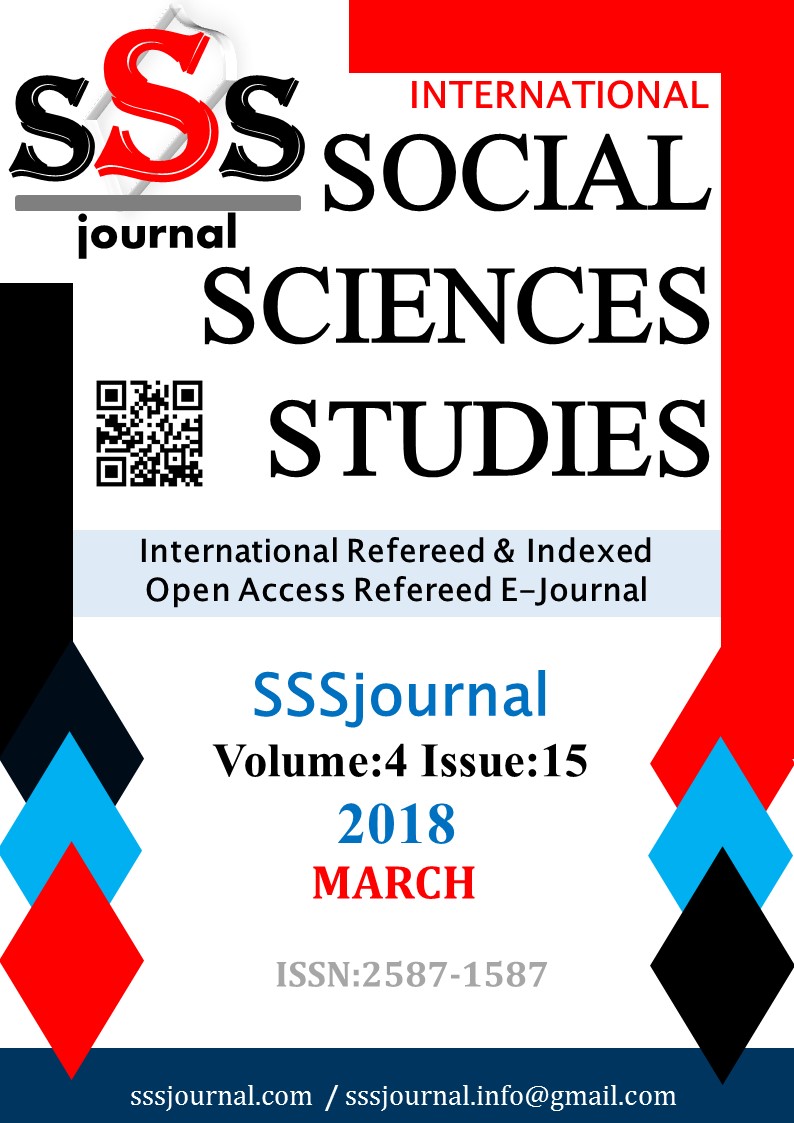Author :
Abstract
Cinsiyet ve toplumsal cinsiyet kavramları insana dair farklılıkların ifade edilişinde anahtar bir role sahiptir. Biyolojik cinsiyet temelinde kadın ve erkek olarak ayrıştırılan insan, doğumundan ölümüne dek yaşadığı toplumun belirleyiciliğinin etkilerini taşır. Zira toplumlar kadın ve erkeğe kendi cinsiyetlerine göre roller ve görevler tanımlamaktadır. Homojen bir atmosferden uzakta, kadın ve erkeğe yüklenen farklı rol ve görevler, küresel manada da toplumdan topluma büyük farklılıklara sahiptir. Başka bir ifadeyle toplumların birbilerinden farklı din, dil, kültür ve geçmişe sahip oluşu kadın ve erkeğin ilgili toplumdaki konumuna yönelik sınırları büyük oranda şekillendirmektedir. Küresel toplumsal cinsiyet uçurumu endeksi kadın ve erkek arasındaki farklılıkların ve daha özelde eşitsizliklerin ifade ediliş biçimi olarak değerlendirildiğinde, ülkeler arasındaki konuyla ilgili farklılıkların tespit edilmesini kolaylaştırabilmektedir. Farklı kriterler üzerine inşa edilen endeks verilerinin oluşturulması ile toplumlar arasında, kadın ve erkeğin sahip oldukları konumlara açıkça ulaşılabilmektedir. Bu kapsamda çalışma, toplumsal cinsiyet çerçevesinde ilgili endeks verilerinden de yararlanarak Türkiye’nin üyesi olduğu G-20 ve aday ülke pozisyonuna sahip olduğu Avrupa Birliğindeki konumunun ortaya konulmasını hedeflemiştir.
Keywords
Abstract
Sex and gender concepts have a key role in expressing differences in people. A person who is separated as a man or a woman on the basis of biological sex is influenced by the determination of the society in which he lived from birth to his death. Because societies define roles and tasks for women and men according to their genders. Apart from a homogenous atmosphere, the different roles and duties imposed on women and men have great differences in collecting from the society in the global meaning. In other words, having different religions, languages, cultures and backgrounds than the ones of the societies shapes the boundaries for the position of women and man in the relevant society. The global gender gaps index can facilitate the identification of differences between countries, when assessed as the difference between men and women, and more particularly as a form of expression of inequalities. The creation of index data based on different criteria makes it clear to women and men the positions they have in society. In this context, that aims to introduce the G-20 position in the European Union and candidate countries with which Turkey is a member of the advantage of position indices in the context of gender-related data.
Keywords
- About the G20. (2018). A Leading Global Forum. About the G20. https://www.g20.org/en/g20/what-is-the-
- About the G20. (2018). A Leading Global Forum. About the G20. https://www.g20.org/en/g20/what-is-the- g20 adresinden alınmıştır.
- About the EU. (2018). The EU in brief. https://europa.eu/european-union/about-eu/eu-in-brief_en adresinden alınmıştır.
- Alter, K. J. ve Steinberg, D. (2007). The Theory and Reality of the European Coal and Steel Community.Forthcoming in S. Meunier and K. McNamara eds European Integration and Institutional Change in Historical Perspective. Oxford: Oxford University Press.
- Anaba, C. E. (2016). Children’s Perceptions of Gender roles as portrayed in Disney films. Department of Psychology. Dublin Business School.
- Bem, S. L. (1983). Gender Schema Theory amd Its Implications for Child Development: Raising Gender-aschematic Children in a Gender-schematic Society. Journal Of Women in Culture atnd Society 1983, vol. 8, no. 4.p.598-616.
- Butler, J. (1990). Gender Trouble. Feminism and The Subversion of Identity. New York: Routledge.
- Diamond, M. (2002). Sex and Gender are Different: Sexual Identity and Gender Identity are Different. Clinical Child Psychology&Psychiatry-Special Issue In Press.
- Engagement Groups. (2018). G20 in Argentina. Engagement Groups. https://www.g20.org/en/g20- argentina/engagement-groups adresinden alınmıştır.
- Euro Sceptic. (2018). A List of the Most Notable Treaties in Regard to the EU. http://www.euro- sceptic.org/a-list-of-the-most-notable-treaties-in-regard-to-the-eu.html adresinden alınmıştır.
- EU Treaties. (2018). European Union Treaties. http://www.civitas.org.uk /content/ files/OS.7.Treaties.pdfG20 Members. (2018). The G20 Membership. http://g20.org.tr/about-g20/g20-members/ adresindenGarcía L.I., Mitchell J.W. (2013). Gender Differences. In: Gellman M.D., Turner J.R. (eds) Encyclopedia of Behavioral Medicine. Springer, New York, NY.
- Gender Concepts. (2018). Gender, Gender Concepts and Definitions. http://www.ekvilib.org/wp- content/uploads/2017/06/01_Gender_Concepts.pdf adresinden alınmıştır.
- GGG Report. (2017). The Global Gender Gap Report. World Economic Forum. http://www3.weforum.org/docs/WEF_GGGR_2017.pdf adresinden alınmıştır.
- Group of 20. (2018). The G-20 (Group of 20). What is the G-20? https://www.brookings.edu/wp- content/uploads/2016/07/G20_backgrounder.pdf adresinden alınmıştır.
- History. (2018). History of Women. http://w20argentina.com/en/historia/ adresinden alınmıştır.Holmes, M. (2007). What is Gender? Sociological Approaches. London: SAGE Publications.
- Main Treaties. (2018). The European Union Treaties. https://europa.eu/ european-union/law/treaties_enMember Countries. (2018). The 28 member countries of the EU. https://europa.eu/ Euro pean-union/about- eu/countries_en#tab-0-1 adresinden alınmıştır.
- Nelson, M. R. (2017). The G-20 and International Economic Cooperation: Background and Implications forCongress. Congressional Research Service Report. CRS Report R40977. USA: CreateSpace Independent Publishing Platform.
- Moi, T. (2001). Sex, Gender and the Body. New York: Oxford University Press.
- Muehlenhard, C. L. ve Peterson, Z. D. (2011). Distinguishing Between Sex and Gender: History, Current Conceptualizations, and Implications. Sex Roles (2011) 64:791–803.
- Peace Prize. (2012). The Nobel Peace Prize. https://www.nobelprize.org/ nobel_prizes /peace/laureates/2012/The Solar System of G20. (2018). G20 Fundamentals. https://www.boell.de/sites/default /files /uploads/ 2016/12/g20__the_fundamentals_4_the_solar_system_of_g20_-_engagement_groups.pdf?dimension1=
- Values of the EU. (2018). Goals and values of the EU. https://europa.eu/european-union/about-eu/eu-in- brief_en adresinden alınmıştır.
- Wnukowski, D. (2016). The Importance of the G-20 in Shaping Global Economic Governance Polish Institute of International Affairs. No:58 (908).
